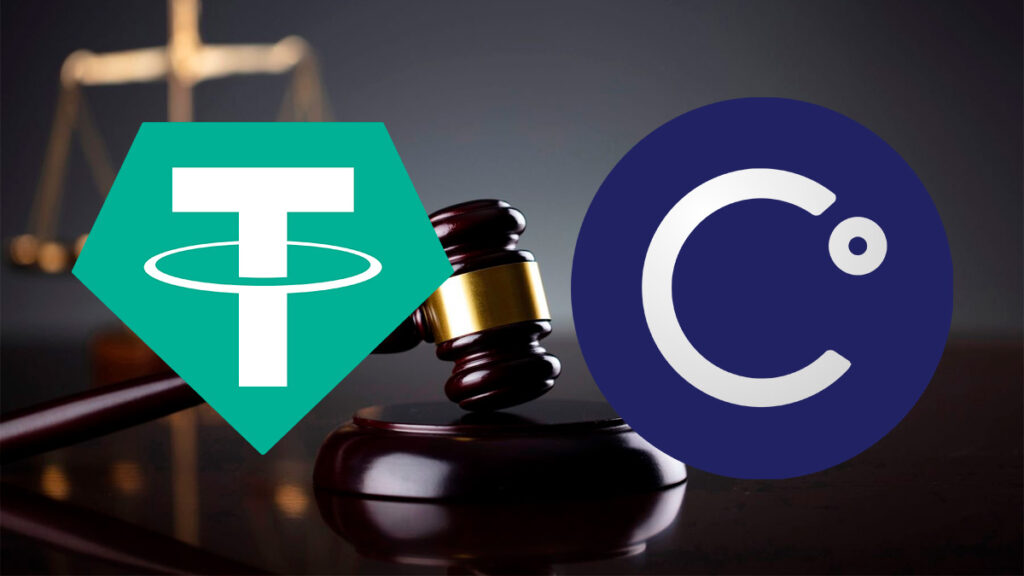TL;DR
- Tether Dismisses Celsius Lawsuit: Tether Limited calls Celsius Network’s $3.3 billion lawsuit a “baseless” and “frivolous extortion attempt,” asserting that the Bitcoin liquidation was done with Celsius’ consent.
- Dispute Over Bitcoin Liquidation: Celsius claims Tether wrongfully liquidated $2.4 billion worth of Bitcoin collateral in June 2022, while Tether maintains it followed Celsius’ instructions during a margin call.
- Broader Implications for Crypto Industry: The lawsuit, amid increased regulatory scrutiny, could set a precedent for future disputes over collateral agreements and liquidation processes, impacting how crypto companies manage risks.
Tether Limited, the issuer of the USDT stablecoin, has dismissed a lawsuit from Celsius Network Limited, calling it a “baseless” attempt to shift responsibility for its financial troubles. Tether described the lawsuit, filed on August 9 in the U.S. Bankruptcy Court for the Southern District of New York, as a “frivolous extortion attempt.”
The legal dispute centers around a 2022 agreement between Tether and Celsius. Celsius claims Tether wrongfully liquidated $2.4 billion worth of Bitcoin collateral in June 2022.
Celsius argues that this liquidation was unjust and seeks the return of the Bitcoin. Tether, however, asserts that the liquidation occurred with “Celsius’ direction and consent” based on the Bitcoin prices in June 2022.
Background of the Dispute
In 2022, Tether provided USDT to Celsius, which offered Bitcoin (BTC) as collateral. Celsius later filed for bankruptcy in July 2022 due to financial difficulties. When Bitcoin’s price dropped sharply in June 2022, Celsius faced a margin call and was supposed to provide more collateral to avoid the liquidation of its Bitcoin held by Tether.
Tether claims that Celsius chose not to provide additional collateral and instead instructed Tether to liquidate the Bitcoin to settle its $815 million USDT debt. Tether maintains that this decision was made with Celsius’s full awareness and agreement.
Tether’s Defense Strategy

Tether argues that the lawsuit misapplies the law and ignores the facts of their original agreement. They claim Celsius is trying to make Tether pay for Celsius’s poor financial management decisions.
In a press release, Tether stated: “Rather than recognize the clear validity of the agreement made years before Celsius’ bankruptcy, this lawsuit seeks to unfairly impose the costs of Celsius’ mismanagement and failure on Tether.” Tether contends that the lawsuit is an attempt to shift responsibility for Celsius’ financial issues onto them.
Potential Impact on USDT Holders
Tether plans to vigorously defend itself in court, expressing confidence that the outcome will favor them. They stated that Tether “will never fall prey to shameless litigation money grabs.” Tether intends to present evidence showing Celsius consented to the liquidation process.
This case highlights the complexities of financial agreements in the cryptocurrency industry, especially during market volatility. The dispute underscores the importance of clear contracts and the potential legal challenges when such agreements are contested.
Broader Implications for the Crypto Industry
This lawsuit arises amid increased regulatory scrutiny of the cryptocurrency industry. The case could set a precedent for handling similar disputes in the future, especially regarding collateral agreements and liquidation processes.
For Celsius, the lawsuit is part of its efforts to navigate bankruptcy proceedings and address claims from creditors and investors. For Tether, defending against the lawsuit is crucial to maintaining its reputation as a stable player in the crypto market.
As the case unfolds, it will be closely watched by industry participants and legal experts for its potential impact on cryptocurrency lending and collateral management practices.
The outcome may influence how companies structure agreements and manage risks in a volatile market. The Tether and Celsius dispute highlights the challenges faced by crypto companies in an evolving financial landscape.



![Is Dogecoin [DOGE] Security? Mad Money's Jim Cramer believe so](https://crypto-economy.com//wp-content/uploads/2022/01/Capture-2-300x184.jpg)






